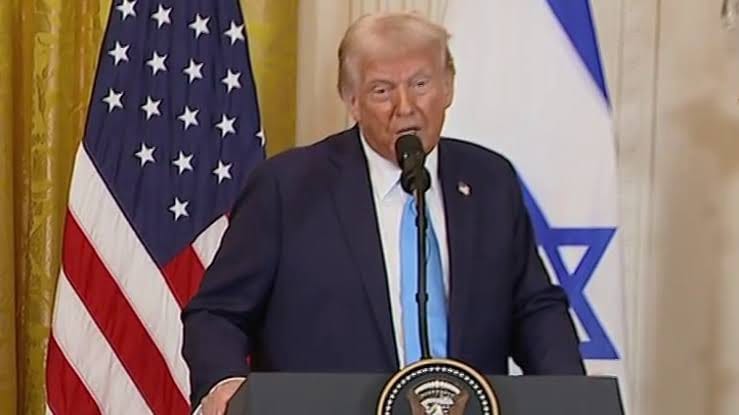Trump sparks controversy with Gaza development plan

United States President Donald J. Trump has proposed an unprecedented post-war vision for the Gaza Strip, suggesting that Israel would hand over control of the territory to the United States once the ongoing conflict ends.
In a post that has since drawn widespread reactions, Trump laid out his vision for Gaza’s future, stating: “The Gaza Strip would be turned over to the United States by Israel at the conclusion of fighting. The Palestinians, people like Chuck Schumer, would have already been resettled in far safer and more beautiful communities, with new and modern homes, in the region. They would actually have a chance to be happy, safe, and free.”

Trump went on to describe a large-scale reconstruction effort, claiming that the U.S., in collaboration with international development teams, would transform Gaza into a world-class economic and architectural hub.
“The U.S., working with great development teams from all over the World, would slowly and carefully begin the construction of what would become one of the greatest and most spectacular developments of its kind on Earth.”
The former president also dismissed the need for American military intervention, asserting that stability would naturally emerge from such a plan.
“No soldiers by the U.S. would be needed! Stability for the region would reign!!!”
Trump’s remarks have ignited intense debate. Critics argue that his proposal oversimplifies the complexities of the Israeli-Palestinian conflict and ignores the legal and political implications of a foreign takeover of Gaza. Others see it as a radical and highly unrealistic idea that sidesteps Palestinian sovereignty and aspirations.
His mention of Senate Majority Leader Chuck Schumer, a Jewish-American politician who has been vocal about the Israel-Gaza war, has also raised eyebrows. Some observers interpret Trump’s reference as an attempt to link U.S. policymakers to the fate of Palestinians, a move likely to spark further political controversy.
While Trump’s statement has not been backed by any official policy or endorsement from Israel or the U.S. government, it underscores his unconventional approach to foreign policy and Middle East affairs. Whether his vision gains traction or remains a provocative talking point remains to be seen.














